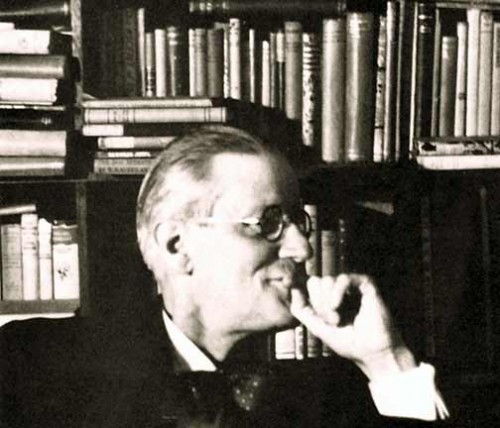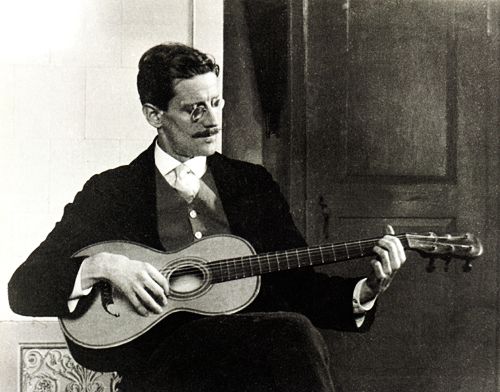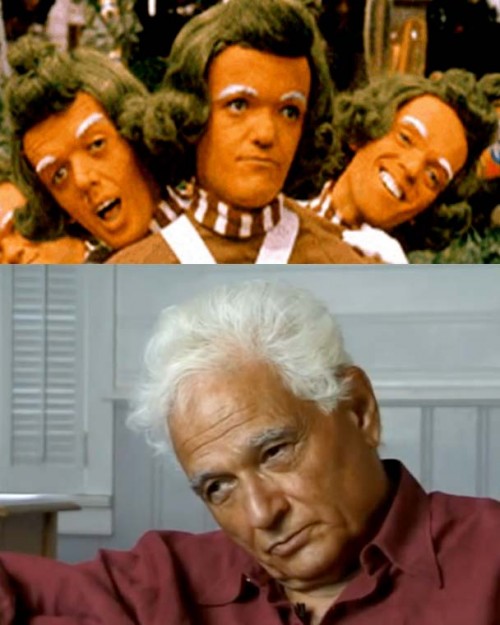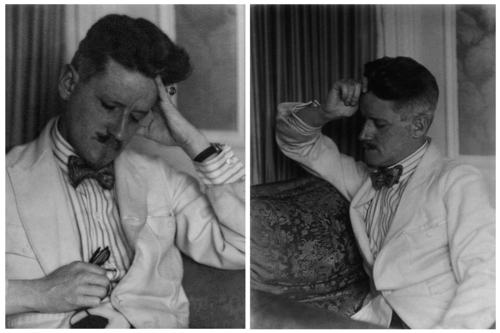January 23rd, 2012 / 3:30 pm
Behind the Scenes
Reynard Seifert
Behind the Scenes
Derrida on Yes in Ulyesss
“ULYSSES GRAMOPHONE: Hear say yes in Joyce”
Speaking of Joyce. Some the best writing on reading I maybe ever. Don’t worry if you ain’t Ulyssesed. No soft spots on the grindstone.
Reading this rid me the image of Derrida as Oompa Loompa that somehow seared my mind.
If you have a copy, anytime’s a good time to finger that shit from your shelf, give its gentle heft some reconsideration. Or O yeah it’s free. Pry wherever, really.
Tags: basically i'm stoked on reading ulysses, EYES, google books, gutenberg is a funny name for an electronic public domain site, note the bowtie, old news is still good news, YES





how do you print something from google books i want to print this for the train
i don’t think you can do that, google is kind of a dick; it’s a long essay, singes the jellies
Thank you for this!
JESUS I RLLY WISH I HAD AN IPAD
btw it totes looks like jj has a ‘fade’ in that last foto, whatta babe
fosho
The gist of Derrida’s deconstruction of “transcendental adverbiality” is that yes simultaneously preempts the Other; yes is both monologic and dialogic, both King and Pope. This ‘impossible’ coexistence (of remoteness from and contact with the Other), Derrida discovers everywhere: in unaware philosophers and knowing artists. His deconstruction is as relentlessly all-encompassing – ironically?? – as any Master Narrative you’ll find.
As Guy Davenport points out (in “Joyce’s Forest of Symbols,” in Geography of the Imagination), the title “Ulysses” contains the word “yes,” as does the novel’s first word, “Stately” (only backwards): “so that Ulysses, like the Wake, is circular, as is the Portrait, for the fabulous artificer at the end made artificial cows like the fabulous cow of the beginning—’anybody can be an artist by turning a mirror round and round'” (288).
I wish I could find Joyce’s poems collection–last I looked they weren’t available in anything but Penguin 20th Century Classics in Spanish (?). They may not be worth much, but… never know. The way he describes food (cooking, taste, etc.) in Ulysses always blew my mind.
“Yes” is also contained in the phrase “naughty farties”
http://loveletters.tribe.net/thread/fce72385-b146-4bf2-9d2e-0dfa6ac7142d